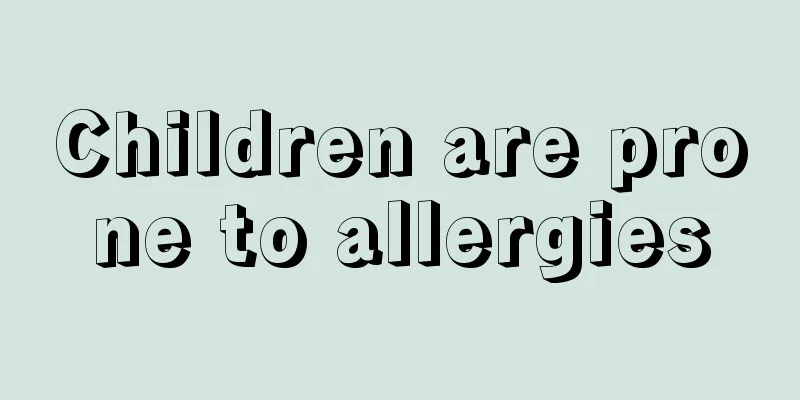Children are prone to allergies

|
Having a baby with allergies can make parents feel very distressed, because many children have allergies. People with allergies cannot take medicine casually, and their body resistance is relatively poor, so some allergies have to go to the hospital for injections. The reason why babies are prone to allergies is mostly because the allergens have not been found. It is necessary to detect the allergens first and then pay attention to them to prevent allergies. How to treat babies with allergies? There is currently no good treatment for baby's allergies, and the most effective method is prevention. Pay attention to your child's diet, observe and record your child's diet for a long time, and if allergies occur, completely avoid contact with allergic foods. But milk is an exception. Although some babies are allergic to milk and develop eczema, they still need to be fed milk. Milk is a very good nutritious food for babies. As long as you understand the common sense about eczema and keep your skin cool, eczema will disappear on its own. Is there any medicine to treat allergies? some. But don't give your child over-the-counter allergy medicines before taking him to a doctor. Your doctor may recommend an antihistamine and give you a prescription. Many newer allergy medicines have fewer side effects than other medicines on the market. If your child does have allergies, the allergist may recommend allergy shots (immunotherapy), but this is usually not done until the child is 4 to 6 years old. However, it is occasionally used in younger children, such as those with severe asthma. Allergy shots are given in hospital and contain small doses of allergens - such as pollen, dust mites or dander - which will help children gradually get used to the substance. Desensitization shots usually go like this: one shot a week for about 4 to 6 months, until he has been exposed to enough allergens to adapt his body as much as possible. Next, one or two shots are given monthly for 4 to 6 months, and then once a month for a year. After this, your child's doctor will determine whether further treatment is needed, and if the allergy shots have shown to be helpful, your child may continue to get them for a few years. In recent years, oral desensitization has been commonly used in clinical practice, which is more convenient and safer than injection desensitization. Are children's allergies genetic? Children can inherit a tendency to have allergies, but not necessarily a specific allergy. For example, if either of a child's biological parents has hay fever or is allergic to pets, there is a 40% to 50% chance that the child will also be allergic to something. If both biological parents suffer from allergic diseases, the child's chances of developing allergies will increase to 75% to 80%. |
>>: What snacks do children like to eat?
Recommend
Why does the newborn baby have poor appetite and is sleepy?
As a very important child in a family, a newborn ...
What should I do if my seven-month-old baby has a fever of 38 degrees?
It is very common for babies to have a fever, and...
What should I do if my child has a cough caused by the wind?
People will suffer from diseases in their daily l...
Daily care for children with diarrhea after fever
I believe parents all know that many babies suffe...
How to avoid eating milk powder when the baby coughs
As autumn approaches, the climate becomes changea...
Why are baby teeth yellow?
Every part of the human body can be invaded by ge...
Little boy foreskin inflammation
It is a common phenomenon for many little boys to...
When babies cry and gasp, parents need to understand these reasons before they can give first aid
Generally, when children cry loudly, they may sud...
What to do if your baby yawns and won’t sleep
Sleeping should be the most important part of lif...
If I sleep with my head tilted, will it still be tilted when I grow up?
Sleeping with a tilted head is a colloquial term ...
What to do if a 6-year-old child has a hunchback?
Many parents will find a strange phenomenon, that...
Causes of cerebral palsy in children
We also call cerebral palsy in children cerebral ...
What is the problem of white spots on children's nails?
When parents are taking care of their children, t...
What to eat for cough caused by cold in children
Everyone's physique is different, and childre...
What to do if your baby's fontanelle is sunken
Babies have two fontanelles. One is at the front ...









